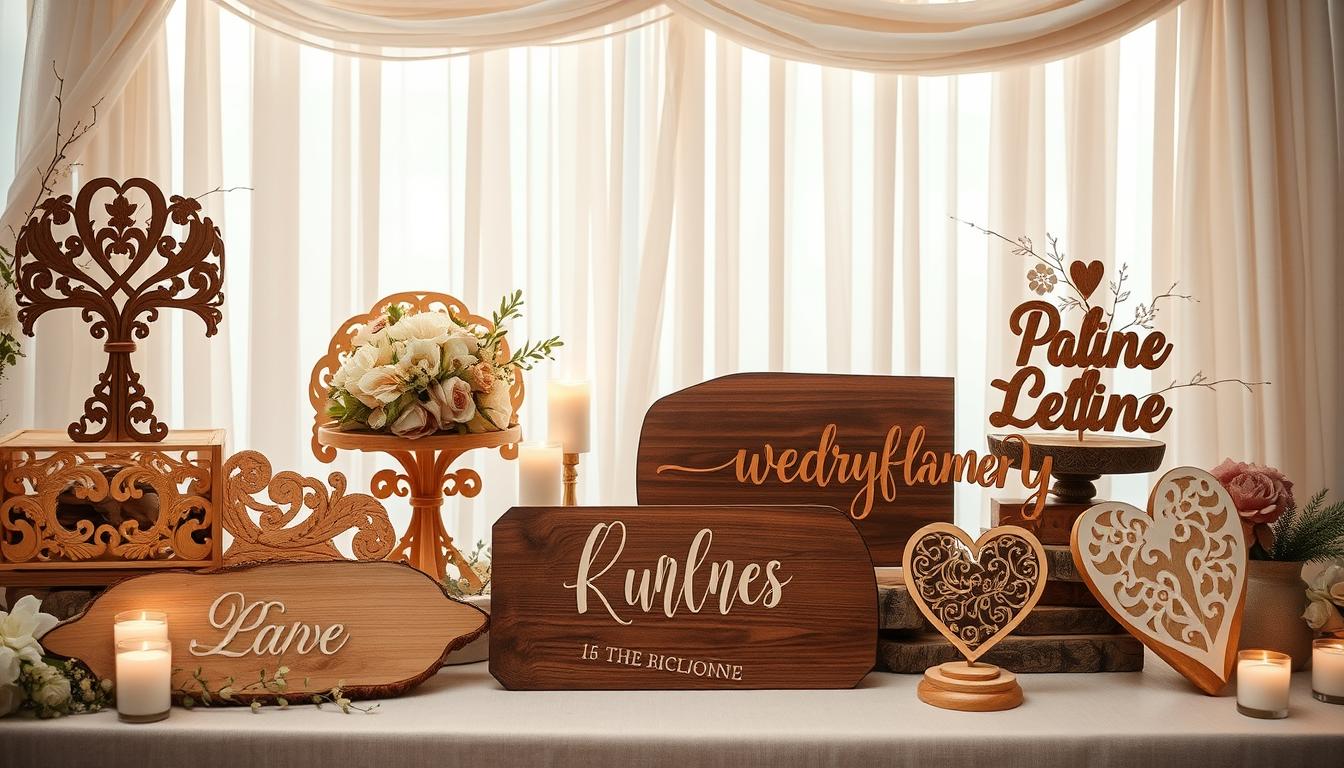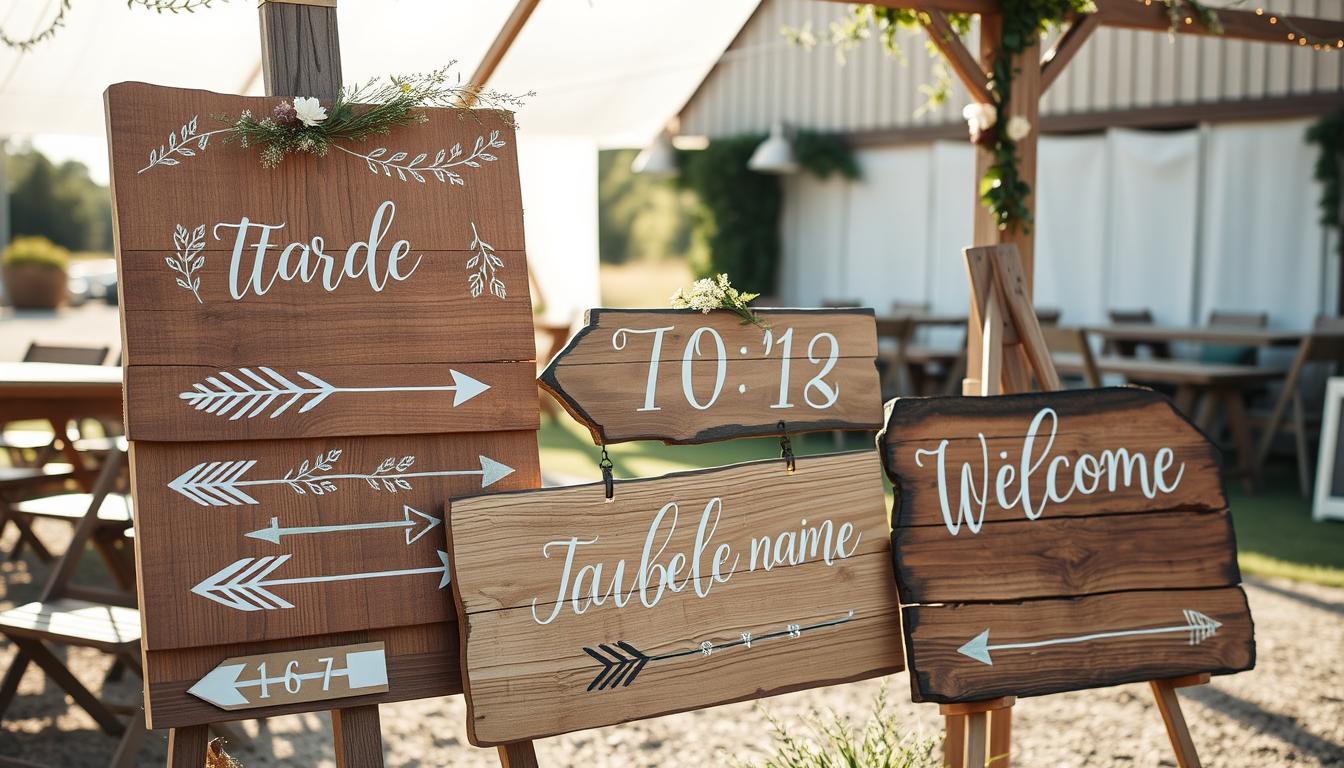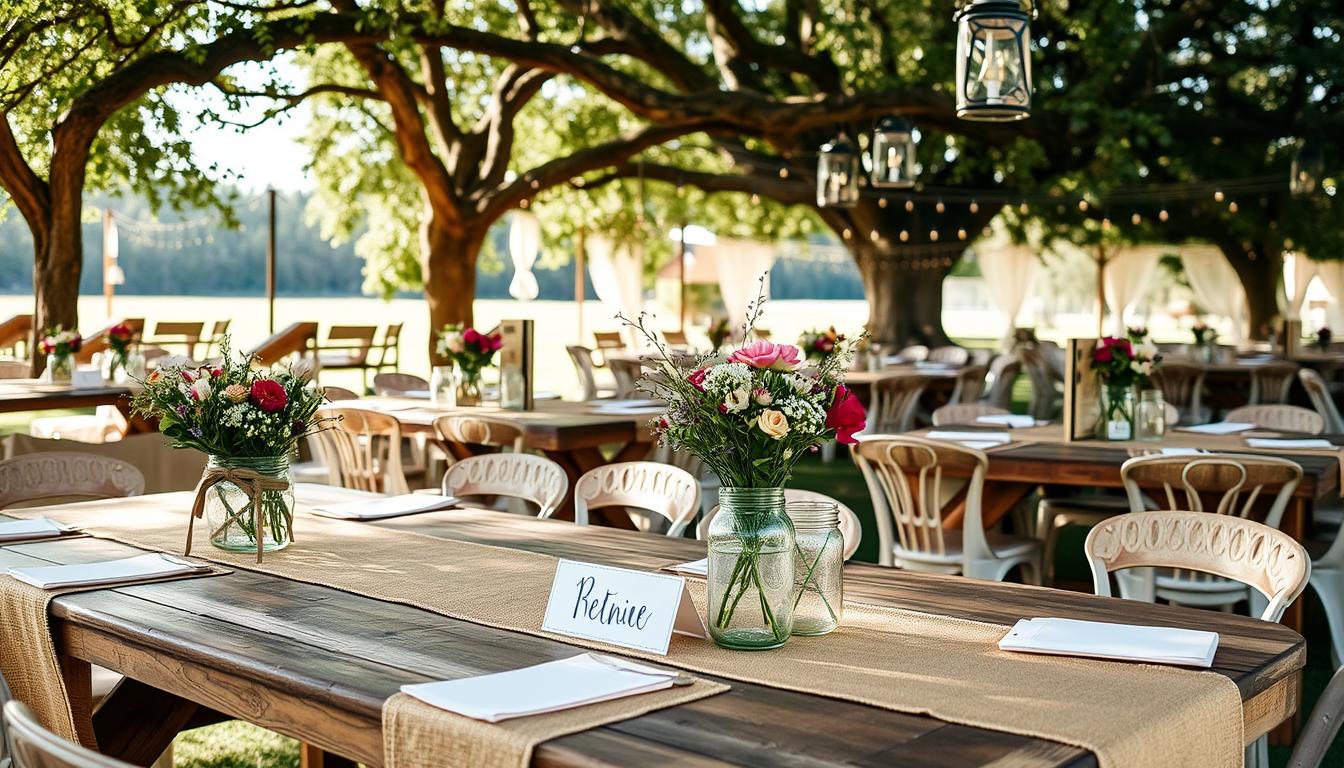Exploring laser cutting, I often ask: what makes a piece special? How can I turn my love for home decor into a business? The demand for unique items is growing. This guide will cover the basics of laser cutting and offer 5 affordable project ideas for starting your business.
Key Takeaways
- Understanding laser cutting basics and essential tools is key for starting a home decor business
- Personalization boosts product value, making money with laser engraving
- 5 budget-friendly ideas, like customized wall art and decorative coasters, can kickstart your business
- Laser cutting and engraving products are in high demand, mainly in home decor and wedding & party decor
- Finding a niche and selling unique, personalized items can make your business stand out
- Good packaging and presentation can make your laser-cut items seem more valuable, increasing orders
I’m excited to share my knowledge and experiences with you. Together, we can start your journey in selling laser-cut creations.
Getting Started with Laser-Cut Home Decor Business
To start a laser-cut home decor business, you need the right equipment and tools. A laser cutter is key, and you can choose from tabletop or industrial models. Knowing your target market is also important. It helps you make products they’ll love.
The investment at first might seem big. But with the right gear and a good plan, you can make money. Popular laser cutters include the xTool M1 10W Deluxe RA2 Pro and the Glowforge Aura. Think about the materials you’ll use and how precise you need to be.
Here are some key things to consider when starting:
- Look into different laser cutters and what they can do
- Know what your target market wants
- Plan your investment and stick to a budget
- Pick the best equipment and tools for your business
By taking these steps and doing your homework, you can succeed in the laser-cut home decor business.
| Laser Cutter Model | Price | Capabilities |
|---|---|---|
| xTool M1 10W Deluxe RA2 Pro | $500-$1000 | Cutting and engraving various materials |
| Glowforge Aura | $1000-$2000 | Cutting and engraving various materials |
Setting Up Your Workspace for Success
To boost your efficiency and productivity, setting up a well-organized workspace is key. A dedicated area with good air flow and cleanliness is vital for quality products. Think about getting a compact laser cutter like the Thunder Bolt or a bigger one like the Nova Series, based on your needs and budget.
Organizing your workspace well can really help your productivity. First, divide your space into areas for cutting, finishing, and storing. Make sure it’s well-ventilated and safe, with fire extinguishers and protective eyewear. This keeps you safe and focused.
Here are some important things to think about for your workspace:
- Adequate ventilation to prevent inhalation of fumes and particles
- A clean and organized environment to reduce errors and increase efficiency
- A logical layout to streamline your workflow and reduce waste
- Proper safety measures, including fire extinguishers and protective eyewear
By putting time and effort into a well-organized workspace, you’ll make high-quality products faster. This helps your laser-cut home decor business succeed. Focus on efficiency and organization to be more productive.
With a good workspace, you can focus on making unique items. This includes custom jewelry, decorative pieces, and industrial items. It will help your business grow and succeed.
| Workspace Considerations | Importance |
|---|---|
| Adequate Ventilation | High |
| Clean Environment | High |
| Logical Layout | Medium |
| Proper Safety Measures | High |
Five Budget-Friendly Laser-Cut Projects to Launch Your Business
Starting a laser-cut business can seem daunting. But, with the right projects, you can begin with confidence. Here are 5
These projects include:
- Customized wall art panels
- Decorative coasters sets
- Modern house number signs
- Minimalist jewelry organizers
- Botanical wall hangings
These projects are easy to make and don’t cost much. They’re great for starting your laser-cut business. With the right materials and settings, you can make unique, personalized items. These will draw in customers and make your business stand out.
| Project | Materials Needed | Laser Cutting Settings |
|---|---|---|
| Customized wall art panels | Wood, acrylic, or metal | Depends on material |
| Decorative coasters sets | Wood, cork, or stone | Low power, high speed |
| Modern house number signs | Wood, metal, or plastic | High power, low speed |
| Minimalist jewelry organizers | Wood, metal, or fabric | Low power, high speed |
| Botanical wall hangings | Paper, wood, or metal | Depends on material |
Material Selection and Cost Management
Choosing the right material selection is key for quality and durability in laser cutting. You can pick from wood, metal, and plastic. I think about the product’s use, look, and budget when picking.
Managing costs is also important for your laser-cutting business. I find good suppliers and negotiate prices. I also look at production costs like materials, labor, and equipment when setting prices.
Some common laser cutting materials are:
- Wood: Great for home decor like signs and wall art
- Metal: Used for decorative items like coasters and jewelry
- Plastic: Versatile for products like phone cases and keychains
By picking the right material selection
Here’s a table showing some popular laser cutting materials and their uses:
| Material | Uses |
|---|---|
| Wood | Home decor, signs, wall art |
| Metal | Decorative items, customized coasters, jewelry |
| Plastic | Custom phone cases, keychains, other decorative items |
Selling Your Laser-Cut Creations: A Beginner’s Guide to Home Decor Entrepreneurs
To sell your laser-cut creations, you need a good plan. Use online marketplaces and social media to find customers. Also, set prices that are fair and competitive.
Online marketplaces like Etsy, Aftcra, and Amazon Handmade are good places to sell. They have lots of customers. Social media is also key for promoting your products and finding new customers.
Online Marketplace Strategy
For online marketplaces, use great photos and detailed descriptions. This helps customers understand and buy your products. Also, use the right keywords to show up in searches.
Social Media Marketing Tips
Instagram and Facebook are great for showing off your laser-cut items. Post high-quality photos and use hashtags to get seen. Talk to your followers and team up with influencers to reach more people.
Pricing Your Products
Setting prices for your laser-cut items needs thought. Look at what others charge and add up your costs. Offer discounts to draw in customers and keep them coming back.
By using these tips, you can sell your laser-cut items and grow your business. Keep up with new trends and marketing ideas to stay ahead.
| Online Marketplace | Fee | Target Audience |
|---|---|---|
| Etsy | 3.5% transaction fee | Handmade and vintage item enthusiasts |
| Aftcra | 3.5% transaction fee | Handmade item enthusiasts |
| Amazon Handmade | 15% transaction fee | Amazon customers |
Design Software Essentials for Beginners
Starting in the laser-cut home decor business means learning about design software. Design software is key to making your ideas real. With many choices, picking the right one can be tough. But, free design tools like Adobe Illustrator and CorelDraw are great for beginners.
Understanding basic design principles is also important. Color theory, typography, and composition are key. Knowing how to use these can make your designs stand out. For example, learning about the color wheel and color balance can greatly enhance your designs.
Popular design software includes LightBurn, which supports SVG, DXF, and AI files. It’s easy to use and has a 30-day trial. CorelDraw and Adobe Illustrator also have lots of tools, perfect for complex designs.

- Start with free design tools to get familiar with the basics of design software.
- Experiment with different software options to find the one that suits your needs.
- Watch tutorials and online courses to learn basic design principles and improve your design skills.
Mastering design software and understanding basic design principles will help you create amazing designs. This will make your laser-cut home decor business stand out.
Quality Control and Product Testing
As a laser-cutting entrepreneur, I know how vital quality control and product testing are. They ensure my products last and are top-notch. I check materials, test products, and fix common laser cutting problems.
Quality control starts with a checklist to check if products meet my standards. I verify designs, look for defects, and test how they work. This way, I ensure my customers get products they love.
Problems like uneven cuts, burns, or wrong engraving can happen. To fix these, I keep records of settings, materials, and designs. This helps me find and fix the problem’s source.
By focusing on quality control and product testing, my laser-cut items are the best. This builds trust and loyalty with my customers, key for my business’s success.
Here are some perks of quality control in laser cutting:
- Improved product quality
- Increased customer satisfaction
- Reduced waste and errors
- Enhanced reputation and credibility
By sticking to these steps and valuing quality control and product testing, I make sure my laser-cut items are top-quality. This meets my customers’ expectations and boosts my business.
Building Your Brand Identity
As a laser-cut home decor entrepreneur, building a strong brand identity is key. It helps you stand out and build a loyal customer base. A good brand identity includes logo design, packaging solutions, and customer experience. These elements help create a unique brand that your target audience will love.
A great logo design is vital for your brand. It will appear on your website, social media, and packaging. Invest in a professional logo that shows your brand’s values and style. Also, focus on packaging solutions that improve the customer experience and make a lasting impression.
Some important things to think about when building your brand identity are:
- Developing a consistent visual brand language
- Creating a unique and recognizable logo
- Designing effective packaging solutions that reflect your brand’s values
- Focusing on delivering an exceptional customer experience
By focusing on your brand identity and these key areas, you can build a strong business. Stay true to your brand’s values and aesthetic. Always check and improve your brand identity to keep it relevant and effective.

Scaling Your Laser-Cut Business
As your laser-cut business grows, it’s key to look at scaling chances. This means boosting productivity and efficiency. Focus on automation to make your production smoother and cut down on labor costs.
Investing in automated systems, like CNC machines, is smart. It lets you make more products faster. This way, you can meet demand and grow your customer base.
Scaling also means expanding your product line. Do market research to find new trends and opportunities. Then, create new products that customers want. This can bring in new customers and boost your sales.
Some tips for growing your product line include:
- Analyze laser engravings online and offline to spot gaps in the market.
- Look into trends and find areas for innovation.
- Try out new designs and test products.
By focusing on scaling, automation, and product line expansion, you can grow your laser-cut business. Keep up with industry trends and be ready to change your strategy when needed.
Scaling the right way can help you overcome challenges and reach your goals. Here’s a table comparing different laser cutting machines:
| Machine Type | Power | Material |
|---|---|---|
| CO2 Laser | 60W | Wood, plastic, fabric |
| Fiber Laser | 50W | Metal, plastic, wood |
| Diode Laser | 20W | Wood, plastic, leather |
Safety Measures and Workshop Guidelines
Working with laser cutting machines requires safety measures to avoid accidents. It’s important to have a clean and organized workspace. Always wear gloves and safety glasses, and make sure the area is well-ventilated to avoid harmful fumes.
A detailed workshop guidelines document is key. It should cover emergency procedures like fires or equipment failures. It’s also vital to teach people about laser cutting safety and hold regular training sessions. This ensures everyone knows the risks and how to stay safe.
Some important safety measures include:
- Regularly check equipment to make sure it’s working right
- Keep the area free from things that can catch fire
- Make sure there’s good air flow to avoid harmful fumes
By sticking to these workshop guidelines and focusing on safety measures, you can reduce the chance of accidents. This makes your workspace safe and healthy for everyone. Remember, laser cutting can be a fun hobby, but safety always comes first.

| Safety Measure | Description |
|---|---|
| Protective Gear | Gloves, safety glasses, and a face mask |
| Proper Ventilation | Ensuring good airflow to prevent toxic fumes |
| Emergency Procedures | Establishing a plan for fires, equipment malfunctions, and other emergencies |
Legal Considerations for Your Home Decor Business
Starting a home decor business means you need to think about the legal side. This includes picking a business structure and getting the right licenses. It’s a bit complex, but it’s key to follow local and federal rules.
Insurance is also a big deal. You’ll need liability and product insurance to cover accidents or defects. Plus, you should know about copyright law if you make unique designs or products.
Here are some important legal points for your home decor business:
- Register your business with the state and get the right licenses and permits
- Get liability and product insurance to protect your business
- Know about copyright law and how it affects your business
By following these steps, you can make sure your business is legal and safe. Always keep up with new laws and talk to a lawyer or business advisor if you’re unsure.
| Legal Consideration | Importance |
|---|---|
| Business Registration | High |
| Insurance Requirements | High |
| Copyright Law | Medium |
Conclusion: Taking Your First Steps in Laser-Cut Entrepreneurship
As we reach the end of this guide, I urge you to start your own laser-cut home decor business. This field is full of creativity, profit, and sustainability. With the right tools and plans, you can make your design passion a successful business.
Getting a top-notch diode laser machine, like the xTool D1 Pro 10W, is a smart first step. It offers precision and affordability for starting your business. These machines can engrave and cut many materials, helping your business grow.
The laser engraving world is booming, with more people wanting unique home decor. Using laser tech, you can make amazing pieces that attract customers. You can create everything from custom wall art to special event favors.
Starting your laser-cut business journey means staying focused and adaptable. Always aim for top quality and customer service. With the right approach and determination, your creative dream can become a real business. So, take that first step and start your journey!



